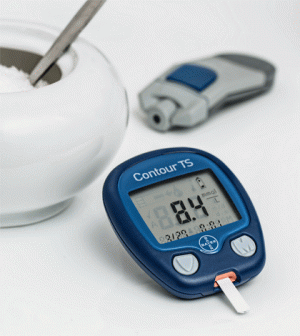- Finding Unshakable Power in a World That Wants to Pull Us ApartPosted 6 months ago
- What could a Donald Trump presidency mean for abortion rights?Posted 6 months ago
- Financial Empowerment: The Game-Changer for Women in Relationships and BeyondPosted 7 months ago
- Mental Health and Wellbeing Tips During and After PregnancyPosted 7 months ago
- Fall Renewal: Step outside your Comfort Zone & Experience Vibrant ChangePosted 7 months ago
- Women Entrepreneurs Need Support SystemsPosted 7 months ago
Blood Sugar and Mood: the Fine Art of Balancing With Food

There are many benefits to balancing your blood sugar. When your blood sugar is on a roller coaster ride all day, so is your mood. Ever wonder why you get irritable and frustrated when you skip a meal? Hypoglycemia (low blood sugar) is the reason behind this and something you want to try and avoid.
Daily consumption of refined carbohydrates, alcohol, poor diet and skipping meals contribute to hypoglycemia and hyperglycemia (high blood sugar). Not only do imbalanced blood sugars affect your physical health which puts stress on different body systems; they also affect your emotional well-being.
Read more about hypoglycemia and marital stress
Diabetic or not, keeping your blood sugar level balanced is important to your overall health. Learning to recognize the signs of hypoglycemia will help you in making preventative steps to achieve greater health. Symptoms of hypoglycemia usually present themselves before increased blood sugar levels do and are easier to recognize.
Symptoms of Hypoglycemia:
- Headaches
- Depression
- Anxiety
- Shaky feeling
- Irritability
- Blurred vision
- Excessive sweating
- Confusion
- Incoherent speech
Refined sugars in the diet are quickly absorbed into your bloodstream, resulting in an increase in blood sugar levels. This signals the pancreas to produce increased amount of insulin. Because of the increase in insulin symptoms of hypoglycemia can occur. The rapid drop in blood sugar levels can cause the adrenal glands to secrete cortisol. Over time your adrenal glands can also become exhausted. This situation can cause you to become depressed and emotional issues can present themselves.
As you can see preventative, measures to eliminate low blood sugar reactions are the first step to achieving balance for emotional and physical health in your body.
Read more about stress and emotional control
Try these suggestions to help balance your blood sugar and your mood:
- Include lots of fiber in your diet. Best in the form of vegetables, fruits and whole grains.
- Eliminate refined carbohydrates. Choose 100% whole grain products.
- Choose natural low glycemic options. Learn what the glycemic index is and what foods are more likely to spike your blood sugar levels.
- Avoid sweet drinks by drinking herbal teas and water. Sweet drinks like juice or sodas quickly spike blood sugar levels.
- Eat smaller meals and more often throughout the day.
Following these suggestions can help you minimize your risk of developing diabetes and diabetes related complications. Having symptoms of hypoglycemia can over time lead to type 2 diabetes; this is because of the stress put onto your pancreas. Lifestyle changes can greatly reduce your risk of developing type 2 diabetes.






